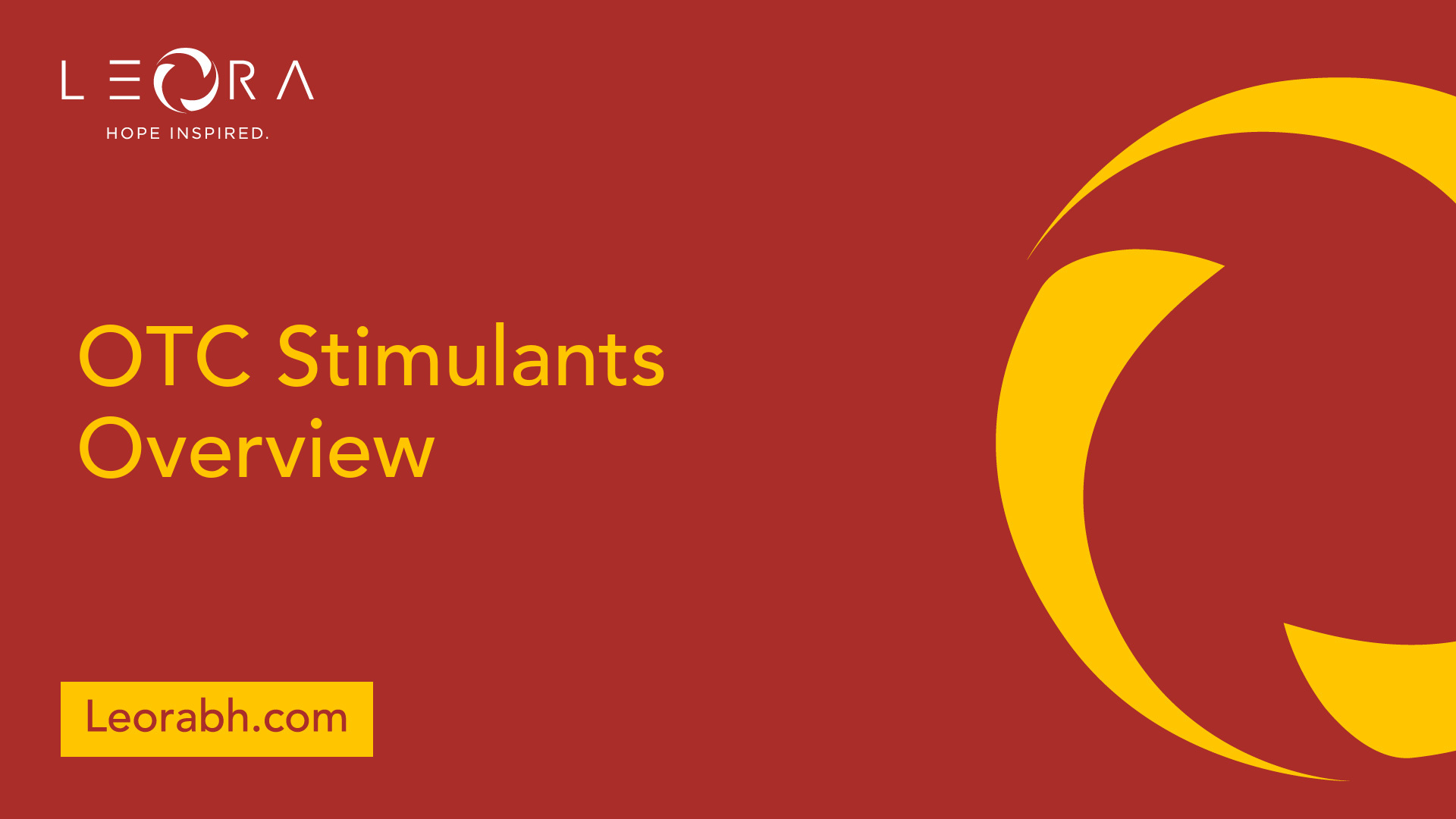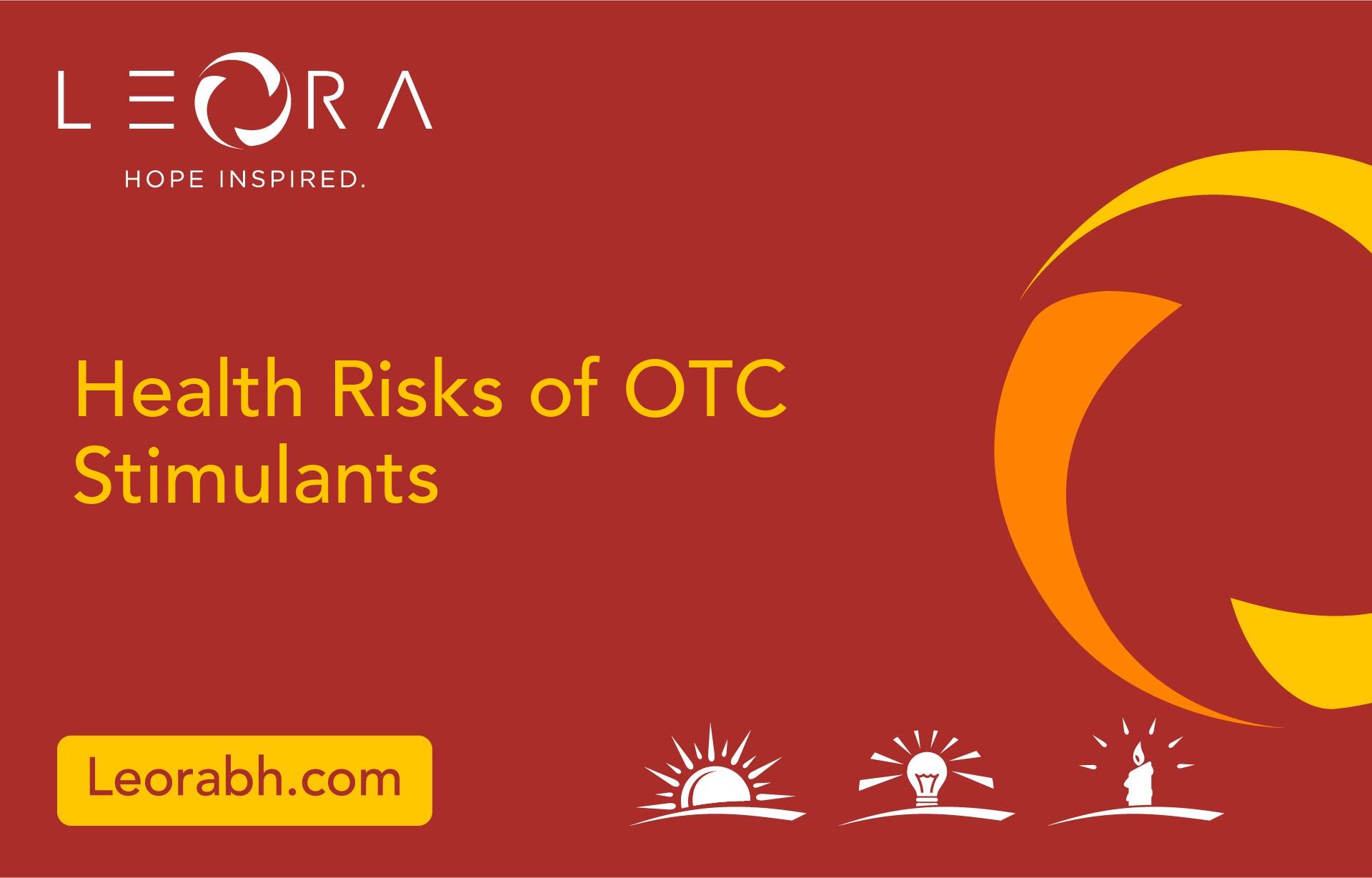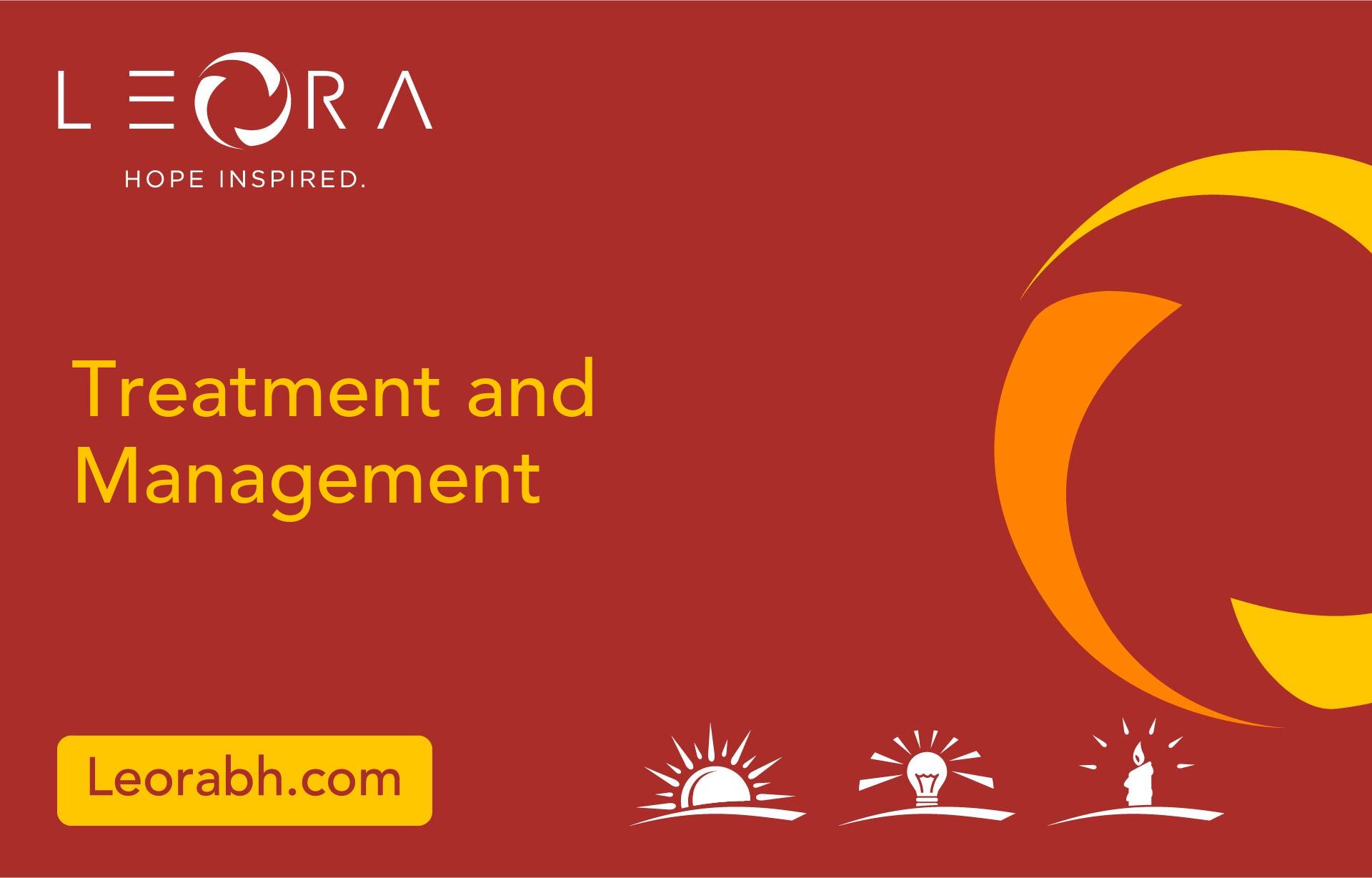OTC Stimulants: What Are Your Options?
Discover OTC stimulant options: Dextromethorphan, Loperamide, health risks, and natural alternatives for ADHD!

Understanding Addiction
Exploring the impact of stimulants is crucial in understanding the potential risks and effects associated with the misuse of over-the-counter (OTC) stimulants. Stimulants can have varying effects on individuals, influencing both physical and cognitive functions. It is essential to delve into the repercussions of stimulant misuse to address potential addiction concerns.
Impact of Stimulants
Stimulants play a multifaceted role in enhancing certain brain chemicals, accelerating heart rate, and elevating blood pressure. Commonly encountered stimulants include caffeine, amphetamines, and select cold medicines. Athletes may resort to stimulants to boost performance levels; however, the misuse of these substances can lead to detrimental health outcomes.
The amphetamine class of drugs is notable for its diverse applications in both medical and recreational settings. These compounds exhibit a broad spectrum of effects, encompassing general and cognitive performance enhancement, euphoric sensations, and aphrodisiac properties in certain users. For the treatment of attention deficit hyperactivity disorder (ADHD), pharmaceutical formulations often incorporate dextroamphetamine, levoamphetamine, pure dextroamphetamine, and lisdexamfetamine.
Misuse and Effects
Misuse of OTC stimulants such as Dextromethorphan (DXM) and Loperamide can result in severe health implications. DXM, a common ingredient in cough suppressants, is among the most frequently abused OTC medications. Available in various forms like syrup, tablets, and gel capsules, DXM misuse can trigger hallucinations, panic episodes, paranoid behavior, aggression, and other adverse health effects. Concurrent use of DXM with substances like alcohol and marijuana can exacerbate its detrimental effects.
Loperamide, primarily utilized as an anti-diarrheal agent, also poses a significant risk when misused. Abusing loperamide involves the consumption of excessive quantities of the drug in tablet, capsule, or liquid formats. The misuse of loperamide can induce euphoria, fainting, gastrointestinal discomfort, constipation, ocular changes, and potential organ damage. Mixing loperamide with other substances can amplify its adverse effects, necessitating caution and awareness of the risks associated with its misuse [3].
Understanding the impacts and ramifications of stimulant misuse is paramount in addressing addiction concerns and promoting informed decisions regarding the use of OTC stimulants. By comprehending the interplay between stimulants and addiction risks, individuals can make educated choices to safeguard their well-being.

OTC Stimulants Overview
Delving into the realm of over-the-counter (OTC) stimulants provides a glimpse into the world of accessible yet potentially misused substances. Two commonly encountered OTC stimulants are Dextromethorphan (DXM) and Loperamide. Understanding these stimulants is crucial in recognizing their effects and risks.
Dextromethorphan (DXM)
Dextromethorphan, also known as DXM, is a cough suppressant that finds its way into numerous OTC cold medicines. It stands as one of the most commonly misused OTC medications due to its potential for abuse. Typically available in syrup, tablet, or gel capsule form, DXM misuse can lead to a range of adverse effects, including hallucinations, panic, paranoia, and aggression. Users may compound the risks by combining DXM with other substances like alcohol and marijuana.
The misuse of DXM can have severe consequences, impacting both physical and mental health. Misinformation and unregulated use of DXM underscore the importance of awareness and education regarding the potential dangers associated with its misuse. For more information on over-the-counter stimulants and what to be aware of, visit our article on over-the-counter stimulants: what to know.
Loperamide
Loperamide, an anti-diarrheal medication available over the counter in tablet, capsule, or liquid formulations, is another OTC stimulant that warrants attention. When misused, individuals may ingest large quantities of loperamide to experience euphoria. However, misuse of loperamide can lead to various health issues, such as fainting, stomach pain, constipation, and changes in eye function.
The misuse of loperamide highlights the potential dangers associated with accessing OTC medications without proper guidance and oversight. Mixing loperamide with other substances can exacerbate its effects and increase the risk of adverse reactions. Understanding the risks and consequences of misusing OTC stimulants like loperamide is essential for promoting safe and responsible medication use.
The misuse and abuse of both DXM and loperamide can result in addiction, leading to a range of health issues and interfering with daily responsibilities. Although specific medications for treating addiction to these OTC stimulants are not available, behavioral therapies such as cognitive-behavioral therapy and contingency management may offer valuable support in addressing addiction and promoting recovery [3].

Health Risks of OTC Stimulants
When considering the use of over-the-counter (OTC) stimulants, it's crucial to be aware of the potential health risks associated with their misuse. Understanding the adverse effects of these substances can help individuals make informed decisions about their usage.
Side Effects of Misuse
Two common OTC stimulants, namely Dextromethorphan (DXM) and Loperamide, have known risks associated with their misuse. DXM, a cough suppressant found in many OTC cold medicines, can have depressant and hallucinogenic effects similar to PCP and ketamine when taken in large doses [3]. Misuse of DXM products containing acetaminophen can lead to liver damage.
Loperamide, an anti-diarrheal medication available in various forms, can act similarly to opioids when misused in large amounts. When combined with other substances, loperamide can affect opioid receptors in the brain, potentially leading to harmful effects.
Overdose and Consequences
Overdosing on OTC stimulants like DXM and loperamide can have severe consequences, including life-threatening reactions or even death. Symptoms of an overdose may include slowed or stopped breathing, which can result in hypoxia, coma, permanent brain damage, or fatality.
It's important to recognize the potential dangers of OTC stimulant misuse and to seek medical help immediately if an overdose is suspected. Understanding the side effects and consequences can serve as a deterrent against the misuse of these substances and help individuals make safer choices when it comes to managing their health.
By being informed about the risks associated with OTC stimulants, individuals can take proactive measures to protect their well-being and avoid the potentially harmful effects that come with the misuse of these substances. If you're looking for more information on over-the-counter stimulants, be sure to check out our article on over-the-counter stimulants: what to know for additional insights and guidance.

Treatment and Management
Addressing addiction to over-the-counter (OTC) stimulants is a critical step in promoting recovery and overall well-being. Understanding the underlying factors contributing to addiction and implementing appropriate therapeutic approaches are essential components of effective treatment strategies.
Addressing Addiction
Misuse of OTC stimulants, such as Dextromethorphan (DXM) and Loperamide, can lead to addiction characterized by a range of health issues and challenges in meeting responsibilities. The impact of addiction to these substances can be profound, affecting various aspects of an individual's life, including physical health, mental well-being, and interpersonal relationships.
When addressing addiction to OTC stimulants, it is crucial to seek professional help and support from healthcare providers specializing in addiction treatment. Behavioral therapies, such as cognitive-behavioral therapy and contingency management, have shown promise in treating addiction to these OTC medicines. These therapeutic approaches aim to address underlying psychological factors contributing to addiction and empower individuals to make positive changes in their behavior and thought patterns.
Therapeutic Approaches
While there are currently no medications specifically approved to treat addiction to DXM or loperamide, behavioral therapies play a significant role in supporting individuals on the path to recovery. Cognitive-behavioral therapy helps individuals recognize and modify detrimental thought patterns and behaviors related to substance use. Contingency management reinforces positive behaviors by offering incentives for desirable actions, promoting motivation for sustainable recovery [3].
In addition to formal therapeutic interventions, support from peer groups and community resources can provide valuable encouragement and accountability during the recovery process. Building a strong support network that understands the challenges of addiction and provides empathy and guidance can significantly enhance the likelihood of successful recovery.
By addressing addiction to OTC stimulants through a comprehensive and personalized approach that integrates professional treatment, behavioral therapies, and social support, individuals can embark on a journey toward lasting recovery and improved quality of life. It is important to remember that seeking help is a brave and crucial first step towards breaking free from addiction and reclaiming control over one's health and well-being.

Natural Alternatives for ADHD
When exploring alternative options for managing ADHD, individuals may consider natural remedies such as vitamin supplements and herbal extracts. These alternatives offer a potentially different approach to addressing ADHD symptoms compared to traditional medications like Adderall.
Vitamin Supplements
Vitamin supplements have shown promise in alleviating symptoms of ADHD in some individuals. Here are some key findings regarding the effectiveness of certain vitamin supplements:
- SAMe Supplements: A 4-week trial conducted in 1990 found that 75 percent of adults with ADHD who were treated with SAMe supplements showed improved symptoms [4].
- Vitamin B-6 and Magnesium: In an early study, doctors provided vitamin B-6 and magnesium supplements to 40 children with ADHD. After 8 weeks of supplementation, all children showed fewer symptoms.
- GABA Supplements: A 2016 study suggested that GABA supplements may help reduce ADHD symptoms related to hyperactivity, impulsivity, and aggressiveness in both children and adults [4].
Consider incorporating these vitamin supplements under the guidance of a healthcare provider to determine the most suitable option for managing ADHD symptoms effectively.
Herbal Extracts
Herbal extracts are another avenue to explore for natural alternatives to traditional ADHD medications. Research suggests that certain herbal extracts may help improve ADHD symptoms in both children and adults:
- Gingko Biloba Extract: A 2014 study demonstrated the potential benefits of gingko biloba extract in improving ADHD symptoms in children. Twenty children showed improvements in test scores and overall quality of life after taking the extract for 3 to 5 weeks.
- Pycnogenol Supplements: In a 2017 study, Pycnogenol supplements were found to significantly reduce hyperactivity symptoms in children with ADHD, enhancing attention, concentration, and hand-eye coordination over a 4-week period.
These herbal extracts offer potential benefits for managing ADHD symptoms naturally. However, it is essential to consult with a healthcare professional before incorporating herbal supplements into your ADHD management plan to ensure safety and efficacy.
By considering vitamin supplements and herbal extracts as natural alternatives for ADHD management, individuals with ADHD can explore additional options beyond traditional medications to support their well-being and address their unique needs.
Legal Stimulants
When it comes to legal stimulants, caffeine stands out as the most widely consumed stimulant globally. It is recognized for its various applications, including dietary, recreational, and performance enhancement purposes. Caffeine is commonly found in coffee, tea, energy drinks, and certain medications. Its stimulating effects are well-known, offering a temporary increase in alertness and energy levels.
Caffeine as a Stimulant
Caffeine functions by blocking the action of adenosine, a neurotransmitter in the brain that promotes relaxation and sleepiness. This blockade results in increased neural activity and the release of other neurotransmitters like dopamine and norepinephrine, leading to heightened alertness and improved focus.
While caffeine can enhance cognitive performance and ward off drowsiness, it is essential to consume it in moderation. Excessive intake of caffeine can lead to negative effects such as jitteriness, anxiety, and disrupted sleep patterns. It's advisable to be mindful of your caffeine consumption and its potential impact on your overall well-being.
Common Stimulants Used
Aside from caffeine, there are several other legal stimulants that are commonly utilized for performance enhancement and addressing specific symptoms based on the drug in use. These stimulants vary in their mechanisms of action and effects, catering to a diverse range of needs and preferences.
Common legal stimulants include substances like:
- Ephedrine: Often used to promote weight loss and enhance athletic performance.
- Synthetic Caffeine: Found in many energy drinks, supplements, and over-the-counter medications.
- Bitter Orange: Used as a weight-loss aid and for its stimulant properties.
- Guarana: Contains caffeine and is used for its stimulating effects.
Understanding the effects and potential risks associated with these legal stimulants is crucial for making informed choices regarding their use. It's important to prioritize your health and well-being when considering the consumption of stimulant substances. For more information on over-the-counter stimulants, check out our article on over-the-counter stimulants: what to know.
Nootropic Supplements
Nootropic supplements, also known as 'cognitive enhancers,' are substances used to improve memory, increase mental alertness and concentration, boost energy levels, and promote wakefulness. While they are not marketed to make individuals more intelligent, they can help in addressing fatigue, procrastination, or boredom. It is important to note that the effects of nootropic supplements are only present as long as the drug remains active in the body.
Enhancing Cognitive Function
Certain nootropic supplements have gained popularity for their potential to enhance cognitive function. For example, Modafinil, classified as a Eugeroic drug, is used to improve cognition, promote wakefulness, and increase alertness. Originally introduced to treat conditions like narcolepsy and obstructive sleep apnea, Modafinil is also being explored for its potential in treating stimulant withdrawal and reducing drug craving and dependence. However, further research is required to fully understand its efficacy and long-term effects.
Other well-known cognitive enhancers, like Ritalin, which dates back to the 1950s, have been utilized to treat conditions such as ADHD. While Ritalin has shown effectiveness in managing ADHD symptoms, misuse of this medication can lead to shifts in brain chemistry that may result in adverse effects such as risk-taking behavior, sleep disturbances, and weight loss.
Safety and Efficacy
Nootropic supplements encompass various substances, including certain B vitamins, fish oil, and herbal extracts like Gingko biloba and Bacopa monnieri. These natural alternatives may offer a safer option compared to pharmaceutical drugs for enhancing cognitive performance. Although the effects of natural nootropic supplements may not be as immediate as pharmaceutical options, they are often reported to have longer-lasting benefits.
When considering the use of nootropic supplements, it is crucial to assess the safety and efficacy of the products. The American Medical Association advises consumers to thoroughly evaluate supplements advertised as nootropics to ensure their quality and reliability for cognitive enhancement [5].
In conclusion, nootropic supplements present a diverse range of options for individuals seeking to enhance their cognitive function. From pharmaceutical drugs like Modafinil to natural alternatives like herbal extracts, it is essential to weigh the potential benefits against the safety and efficacy of these substances. Always consult with a healthcare professional before incorporating any new supplement into your regimen to ensure it aligns with your health goals and needs.
Risks and Considerations
When exploring the use of over-the-counter stimulants, it is essential to consider the long-term effects and contraindications associated with their use.
Long-term Effects
Prolonged use of stimulants can lead to a range of long-term adverse effects on both physical and mental health. One significant concern is the increased risk of strokes and myocardial infarctions. These cardiovascular risks are primarily attributed to the impact of stimulants on the body's cardiovascular system, potentially leading to serious cardiac events.
Moreover, chronic stimulant use can result in psychological dependence and tolerance, where higher doses are needed to achieve the desired effects. This cycle of escalating use can heighten the risk of addiction and withdrawal symptoms when attempting to discontinue stimulant use. Understanding these long-term consequences is vital for individuals considering the use of over-the-counter stimulants.
Contraindications
There are several relative contraindications to the use of stimulants that individuals should be aware of before incorporating these substances into their routine. Patients with advanced arteriosclerosis are advised to use stimulants cautiously due to the increased risk of myocardial infarction associated with stimulant use.
Individuals with severe hypertension should also exercise caution, as stimulants can exacerbate existing high blood pressure. Those with untreated hyperthyroidism, glaucoma, or a recent stroke are considered to have relative contraindications to stimulant use. Additionally, stimulants can worsen cardiac arrhythmias, making them unsuitable for individuals with this condition.
Understanding these contraindications is crucial for making informed decisions about the use of over-the-counter stimulants. Individuals with pre-existing health conditions should consult with a healthcare professional before starting any stimulant regimen to ensure their safety and well-being.
References
Find Your Inner Light
Related Articles
Contact Us
Leora Behavioral Health offers a comprehensive addiction treatment programs to help you get your life back on track.
Our trained professionals will work with you to develop a personalized treatment plan that meets your unique needs. If you or someone you know is struggling with addiction, reach out to Leora Behavioral Health today.


.svg)





.svg)
.svg)
.svg)
.svg)